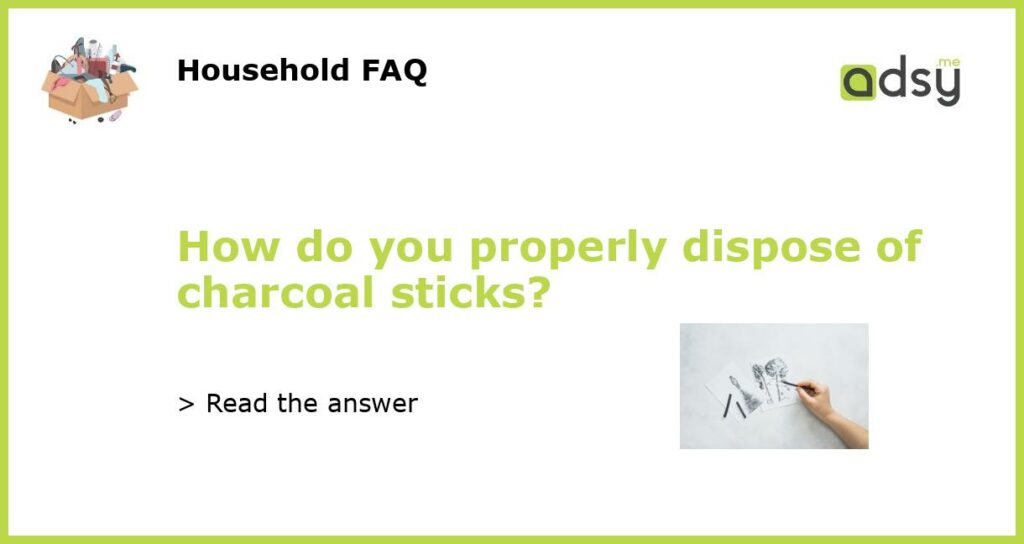Why Properly Disposing of Charcoal Sticks is Important
Barbecues and grilling sessions are fun and flavorful, but leftovers can be toxic, and harmful to the environment. If not disposed of properly, charcoal sticks can pose a great danger to humans, animals, and plants. Some types of charcoal sticks are manufactured with chemicals that can release toxic fumes when burnt or discarded inappropriately. In addition, the burning of charcoal can produce food and water contamination conditions – which can have severe implications for human health. Consequently, proper disposal of charcoal sticks must be a top-of-mind consideration when planning your next barbecue.
How to Dispose of Charcoal Sticks Properly
It’s essential to take the time to understand how to dispose of charcoal sticks adequately. Firstly, when grilling, ensure to never let the fire go out of control or exceed the grill’s capacity. After cooking, wait for the ashes to cool off completely before touching or disposing of them. Once you’ve confirmed the coals have cooled, use a metal or heat-resistant shovel to transfer the ashes into a metal container with a tight-fitting lid. Subsequently, store the container in a cool, dry spot, away from flammable materials, until it’s time for disposal. Remember to keep the container sealed, as carbon monoxide (CO) is a colorless, odorless gas that can be fatal if inhaled in quantity.
Beyond the Grill – Environmental Best Practices
Properly disposing of charcoal sticks isn’t only necessary for safe grilling practices, but it’s also vital for protecting the environment. Charcoal ashes can be used in gardens and yards as a natural liming agent to increase soil’s pH levels; this will reduce soil acidity, and provide carbon for plant nutrients. Additionally, charcoal ashes can serve as a natural insect repellent for pests, such as snails and slugs – their bodies dry out when they contact the charcoal dust. However, be mindful to not over-use the ashes in your garden, as it can lead to increased salt levels. Lastly, if you’re unsure how to dispose of your charcoal sticks, seek the guidance of the local government or approved waste management providers; this instruction will ensure you’re compliant with state and city ordinances.
The Implications of Improperly Disposing of Charcoal Sticks
Improperly disposing of charcoal sticks can lead to a multitude of dangers for the environment, such as increased pollution and reduced air quality. The toxins and chemicals from burnt charcoal can also leave a lingering impact on forests, oceans, and other ecosystems. Dumping charcoal into drainages, rivers or oceans can cause water pollution, which can be deadly for fish, marine mammals, and other aquatic creatures. Moreover, with the onset of global warming, carbon and other greenhouse gases pose an enormous threat to the planet’s plant and animal life: thus, it is everyone’s responsibility to ensure that they’re taking the necessary steps to become environmentally conscious and to preserve the planet for future generations.
The Bottom Line
Barbecuing is a fun and exciting pastime that brings family and friends together – but it’s essential to understand the environmental implications of your actions. Proper disposal of charcoal sticks can prevent toxicity and harm to the environment, and help preserve the ecosystem for future generations. Ensure to adhere to the guidelines mentioned above and always consult with local authorities regarding waste disposal.






